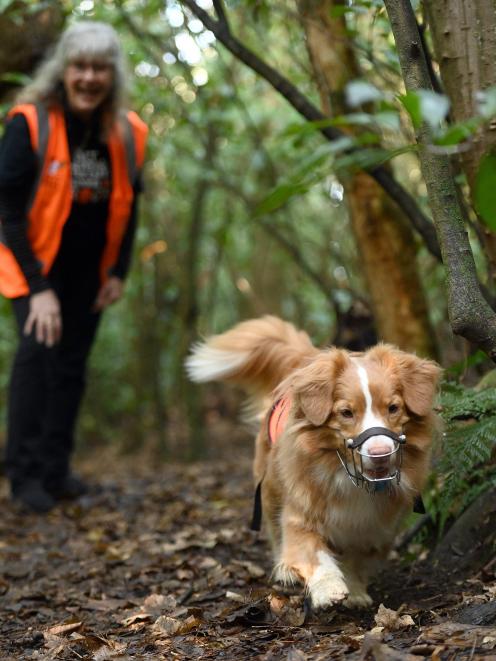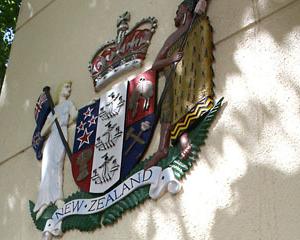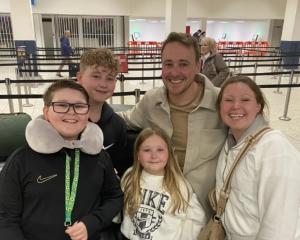Her dog Holly is a Nova Scotia duck tolling retriever — a breed well-known for its high-pitched squealing when it gets excited.
"It sounds horrible. It’s like a blood-curdling scream," she said.
"I’m waiting for the police to turn up, to investigate a murder in my house.

"It’s a quirky characteristic of the breed."
Holly was bought five years ago as a pet by Mrs Bishop and her late husband, former University of Otago zoologist and frog specialist Emeritus Professor Phil Bishop.
They wanted a household dog that could be trained as a working dog, to sniff out native frogs.
And after five years of training, Holly and Mrs Bishop were recently certified as New Zealand’s first native frog-certified dog and handler in the Department of Conservation’s (Doc) conservation dogs programme.
When Holly smelled a native frog, she sat and pointed her nose in the direction the scent was coming from, and they started searching for it in logs and boulders in the area, Mrs Bishop said.
Prof Bishop’s work with New Zealand’s endangered native Leiopelma frogs had highlighted the challenges of their monitoring due to low numbers, patchy distributions and preferred habitats.
"After going on a trip with Doc to Fiordland, Phil was convinced that native frogs may still exist there, and that one day using dogs we could go and explore relevant sites where native frogs roamed many years ago," Mrs Bishop said.
"Phil had been interested in the contribution that conservation dogs could make to such a degree that we began training Holly."
It had been a long and demanding project, and she was elated to have brought Prof Bishop’s vision for the role of conservation dogs in his field of research through to fruition, Mrs Bishop said.

Mrs Bishop was now looking forward to an exciting future with Holly, assisting with the conservation of native frog species.
When not searching for frogs, Holly provides another valuable wellbeing service to the community by being a registered pet therapy dog through Hato Hone St John.
It was a way of giving back to the community for all the support she had received, Mrs Bishop said.
"Holly is an intelligent and amazing companion.
"Phil would’ve been excited, ecstatic and be absolutely thrilled if he could see what Holly and I have achieved, and even though he would have loved to be out in the field finding native frogs with Holly, it’s really comforting knowing she is now capable of realising the vision he had from the start."
Advertisement








